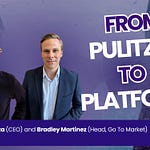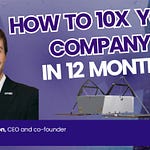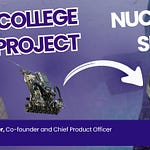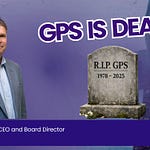Case Study: How ULA CEO Tory Bruno Stewarded a Legacy Giant Through Existential Threats
About Tory Bruno
Tory joined United Launch Alliance as CEO in August 2014, bringing four decades of aerospace experience and a track record of over 400 rocket launches. Previously at Lockheed Martin, he led programs in hypersonics, directed energy, and missile defense while running one of the company's largest and most profitable business units. Bruno initially resisted the ULA opportunity, preferring to work on critical national security technologies, until his wife (also a rocket scientist) convinced him that taking on the ULA mission would be too important for the nation’s space capabilities to pass up.
Bruno is known for his technical depth, strategic foresight, and unconventional approach to business challenges. He is a steady hand in stormy waters. The contrast to his fellow space executives at SpaceX and Blue Origin is quickly apparent.
About United Launch Alliance
United Launch Alliance was formed in 2006 as a joint venture between Boeing and Lockheed Martin, combining their Delta and Atlas rocket programs. Created to solve a national security crisis when both companies threatened to exit unprofitable space launch, ULA became a "monopoly of service" focused on mission success over commercial competition.
When Bruno arrived in 2014, ULA faced existential threats: Senator McCain had outlawed their primary Atlas rocket by 2017, SpaceX was emerging as serious competition, and the company culture was unprepared for competitive markets. The 50-50 ownership structure prevented traditional equity financing, requiring creative approaches to fund development of the new Vulcan rocket.
Today, ULA maintains a 100% mission success rate, has achieved National Security Space Launch certification for Vulcan, and holds major contracts including a multi-billion dollar government award and 47 launches for Amazon's Kuiper constellation.
Key Takeaways
1. Diagnose Your Competitive Vulnerability Honestly
ULA was a "monopoly of service" - excellent at mission execution but blind to competitive threats. Unlike "conquest monopolies" that destroy competitors and stay agile, service monopolies develop dangerous blind spots.
Lesson: Innovator’s dilemma, personified. Monopolies aren’t all equal. Honestly assess where your dominance comes from… it will determine vulnerability to disruption.
2. Turn Structural Constraints Into Strategic Advantages
Unable to raise external equity due to ownership structure, Bruno created the "big five" supplier financing model - convincing suppliers to fund their own development in exchange for larger, consolidated work packages. This constraint forced deeper partnerships and better alignment than traditional investor relationships.
Lesson: What appears to be a disadvantage can become a unique competitive approach. Traditional financing wasn’t available, so Tory created a new one.
3. Choose Your Battlefield Based on Your Advantages, Not Market Size
While competitors chased the large LEO commercial market, Bruno deliberately chose exotic government missions where ULA had differentiated capabilities. "I couldn't compete on price with investors buying market share below cost, so we chose to compete on value."
Lesson: Sometimes the winning strategy is avoiding the obvious market and focus on a smaller one where you have sustainable advantages.
4. Question Industry Orthodoxies With First-Principles Thinking
Bruno challenged the assumption that reusability automatically means lower costs, concluding "it's not that much cheaper - the real value is launch rate." This led to ULA focusing on innovative inflatable heat shield approach for partial reuse optimized for their mission profile.
Lesson: Remains to be seen. But deep subject matter expertise can unveil another path.
5. Maintain Long-Term Vision During Crisis Management
Even while fighting for survival, Bruno continued investing in future capabilities like nuclear propulsion and advanced space technologies. "We had a vision for what we'd eventually need in space to keep the peace. I worked on it the entire time."
Lesson: Crisis management and strategic planning aren't sequential - successful leaders must simultaneously solve immediate problems while positioning for future opportunities.
For more on the United Launch Alliance, visit their website here.
Tory recently launched the Burn Sequence Podcast - you can check it out here.
Please subscribe and share with friends — we’d love to keep doing this sort of in-depth, on-site work if you enjoy it!










